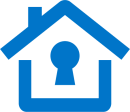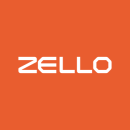When Chloe Boden of Closinglock realized she wanted to move into a leadership position, she was intimidated.
“It was clear that I needed to learn and prepare for when that opportunity arose,” Boden said.
Luckily, her manager and employer had her back, and after expressing interest in leveling-up her career, she decided to take part in a new company-sponsored leadership training program.
“I’m grateful that Closinglock provides tools and resources for those currently managing teams or who have expressed an interest in doing so in the future,” Boden said.
Boden’s desire to learn and grow is common among jobseekers. A Gallup survey found that nine out of ten millennials say that professional development and the opportunity to grow their careers is important to them.
Arjun Vijayakumar, a senior software development engineer in test at Zello Inc, feels similarly. When Vijayakumar wanted to learn how to shift from a “traditional testing mindset to one that enables broader product and engineering success,” his employer encouraged him to attend a conference about quality assurance and innovation.
“Zello was incredibly supportive of my attendance at InnovateQA,” Vijayakumar said. “Not only did the team encourage me to participate but they also ensured I had the time and flexibility to fully engage in the event.”
Built In spoke with Boden and Vijayakumar in detail about how their employers’ support of professional development has made a lasting impact on their careers.
Closinglock is a trusted platform for securing and streamlining real estate transactions.
What new skill or role did you want to learn? Explain why this was important to you.
I have had a few conversations with my manager about eventually leading a team of my own once there is a large enough need. My only previous management experience was as a kitchen manager at a summer camp during college, which came with many lessons learned. The idea of managing a professional team without formal experience was daunting. It was clear that I needed to learn and prepare for when that opportunity arose, which is why I’m grateful that Closinglock provides tools and resources for those currently managing teams or who have expressed an interest in doing so in the future.
How did your employer help support this time of learning?
Starting this year, Closinglock began offering a leadership training and development cohort for all managers and future managers. We work with Matt Hunt from Team Performance Consulting to develop essential leadership skills, improve team dynamics and prepare us for the challenges of managing and leading effectively.
What was the outcome of this experience? How did it impact your future growth in your profession?
We are still in the middle of the training, but it has already proven to be incredibly valuable. A manager can truly make or break someone’s experience at a job and I would never want to be the reason someone no longer wanted to work here. Knowing that our executive leadership team prioritizes developing strong, well-rounded managers gives me confidence in our company’s direction and makes me even more committed to growing my own leadership abilities.
Zello Inc. develops a highly rated walkie-talkie app, with 170 million users in industries such as transportation, retail, construction, hospitality, healthcare and more.
What new skill or role did you want to learn? Explain why this was important to you.
At InnovateQA Seattle, I wanted to deepen my understanding of how quality engineering roles are evolving — specifically, how to shift from a traditional testing mindset to one that enables broader product and engineering success. This was important to me because the software development engineer in test role is no longer just about writing tests; it's about building frameworks, tools and strategies that empower entire teams to deliver better software faster. Attending sessions like Carlos' keynote on mindset shifts — from “I do testing” to “I help others do testing” and eventually “I improve value delivery” — gave me actionable insights into how I can grow into a more strategic and cross-functional quality leader.
How did your employer help support this time of learning?
Zello was incredibly supportive of my attendance at InnovateQA. Not only did the team encourage me to participate but they also ensured I had the time and flexibility to fully engage in the event. My manager helped prioritize workloads so I could focus on the conference without distraction. The fact that Zello invests in continued learning like this signals the importance the company places on growing talent and staying at the forefront of quality and test automation practices.
What was the outcome of this experience? How did it impact your future growth in your profession?
This experience left me with a renewed perspective on what it means to be an impactful SDET. I gained not only exposure to cutting-edge tools like Amazon Nova Act but also inspiration on how to build for scale, collaborate better with developers and rethink test strategy as a driver of engineering and operational excellence. I came away with ideas that I’ve already begun exploring internally — such as improving test tooling to increase team productivity and reducing friction in CI/CD. Longer-term, it’s helped crystallize my path toward technical leadership by showing how quality-focused roles can influence product velocity and team culture beyond just testing.









